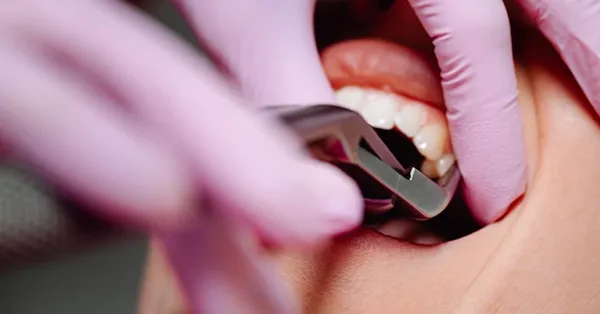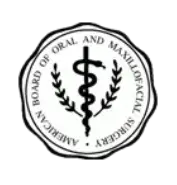The Why’s and How’s of Adult Wisdom Tooth Extraction
Wisdom teeth are the final teeth to come in. For most people, they don't make an appearance until the late teenage years or even into your 20's. If everything goes correctly, erupted wisdom can last a lifetime with proper care. However, it is not usuals for many people to experience problems with the wisdom teeth many years after they erupt. Research shows that 90% of people suffer from at least one impacted wisdom tooth and 12% of wisdom teeth will eventually cause infection in the gums if they're not removed.
Do You Need to Remove Your Wisdom Teeth?
If wisdom teeth are not bothering you, and your general dentist can not find any evidence of wisdom teeth contributing towards disease in the mouth, then there is usually no need to consider removal of your wisdom teeth. However, it is possible for wisdom teeth to develop issues years after they erupt.
Wisdom teeth that have fully erupted and can be reached for proper cleaning may not require removal. As long as they are correctly positioned, these teeth can be used for chewing and biting at the back of your mouth. Eventually, though, most people will need wisdom tooth extraction in addition to regular dental care.
Partially Erupted Wisdom Teeth
Since there is limited space in the mouth for your teeth, wisdom teeth may not have enough space to come in properly. This may result in the teeth coming in on an angle.
Decay is common in wisdom teeth, as they are so far back in the mouth that it is challenging to clean them properly. It's also quite difficult to remove the food particles or plaque that can collect in pockets formed by partially erupted teeth. The result may be an infection that can destroy both teeth and gum tissue. Pericoronitis, an inflammatory gum disease, is also a risk in these circumstances.
Impacted Wisdom Teeth
An impacted wisdom tooth is a more complicated situation than a completely erupted wisdom tooth. Impaction simply means the tooth has grown at an angle that makes it impossible to fully break through the gums. An impacted wisdom tooth can stay symptom-free and remain under the surface of the gums for some time, but if the tooth becomes infected or begins to put pressure on nerves or other teeth, you may notice:
- Bleeding or sensitive gums in the area of the tooth
- Pain and swelling in the jaw
- Swollen or reddened gums
- A bitter or rotten taste
- Pain when opening your mouth
- Bad breath
The pressure from the wisdom tooth is not only painful but can shift your other teeth. This may undo years of orthodontic treatments, or it can push otherwise perfect teeth into odd positions. When teeth are pressed too closely together, it's difficult to clean properly between the teeth, which may result in more cavities forming.
Finally, it's possible for cysts to develop due to the sac where wisdom teeth form. This sac normally ruptures as the tooth erupts through the gums, but it may fill with fluid in some cases. This isn't usually dangerous in itself, but it can cause damage to the surrounding nerves and jawbone. It may even end up creating a non-cancerous tumor that requires removal. This sort of cyst or tumor can damage surrounding tissue and bone, which is a very good reason to talk to an oral surgeon for any type of complex wisdom tooth removal.
When to See an Oral Surgeon
You should have regular checkups with a general dentist to ensure any problems are caught early. If you are between visits and notice any of the above symptoms or pain at the very back of your mouth where the wisdom tooth is erupting, talk to your dentist to get a referral to an oral surgeon.
Adult wisdom tooth extraction requires specialty dental care. An oral surgeon is necessary to ensure the problematic tooth is removed safely and without further impact to the other teeth. As you've seen previously in this article, some serious complications may occur and oral surgeons are trained to treat such issues.
An oral surgeon will let you know if your wisdom teeth need to be removed, and if they do recommend. It is usually a good idea to start with an initial consult appointment with your oral surgeon. At this time, the surgeon will review your x-ray and medical history to determine if the procedure should be done while sedated. This treatment plan will detail all the dental codes recommended for the procedure. This allows our insurance team to check with your insurance provider for coverage and determine if there is a co-pay. Many insurance plans offer pre-authorization and our office is more than happy to submit on behalf of the patient. For patients with dental anxiety it is also possible to provide pre-medication to start taking the night before.
Oral Surgery offices perform many extraction procedures everyday so with proper planning, your extraction appointment should be rather route, allowing you to get back home and start the healing process.
What to Expect From Adult Wisdom Tooth Extraction
Many people have their wisdom teeth extracted when they first erupt, usually at the end of the teenage years because the tooth may have erupted, but the tooth roots have yet to fully develop into the jawbone, a process that can take several years. Thus, it is easier to extract under-develped tooth roots with minimal damage to surrounding tissue, though this procedure still needs to be done by an oral surgeon. If you aren't having any issues you can wait to have the teeth extracted, though your oral surgeon may suggest removal before problems occur to prevent any pain and irritation you may face later on.
As mentioned, a patient's medical background determines the type of anesthesia to use during the extraction. IV General Sedation is sometimes recommended for complex cases or where the patient might not be able to keep still. Numbing medication is applied to the site, and the actual extraction takes place.
You will likely have sutures in the area where the tooth was removed. Typical healing period for wisdom teeth extraction is 3-5 days. If needed, we are more than happy to provide a school or work note for days missed.
No one wants to deal with the excruciating pain that comes with a toothache. If your wisdom teeth are causing you any pain or discomfort, make sure to contact Oral Surgery DC and schedule an appointment immediately.






5 Stars
based on 48 reviews
5 Stars
based on 15 reviews
5 Stars
based on 11 ratings